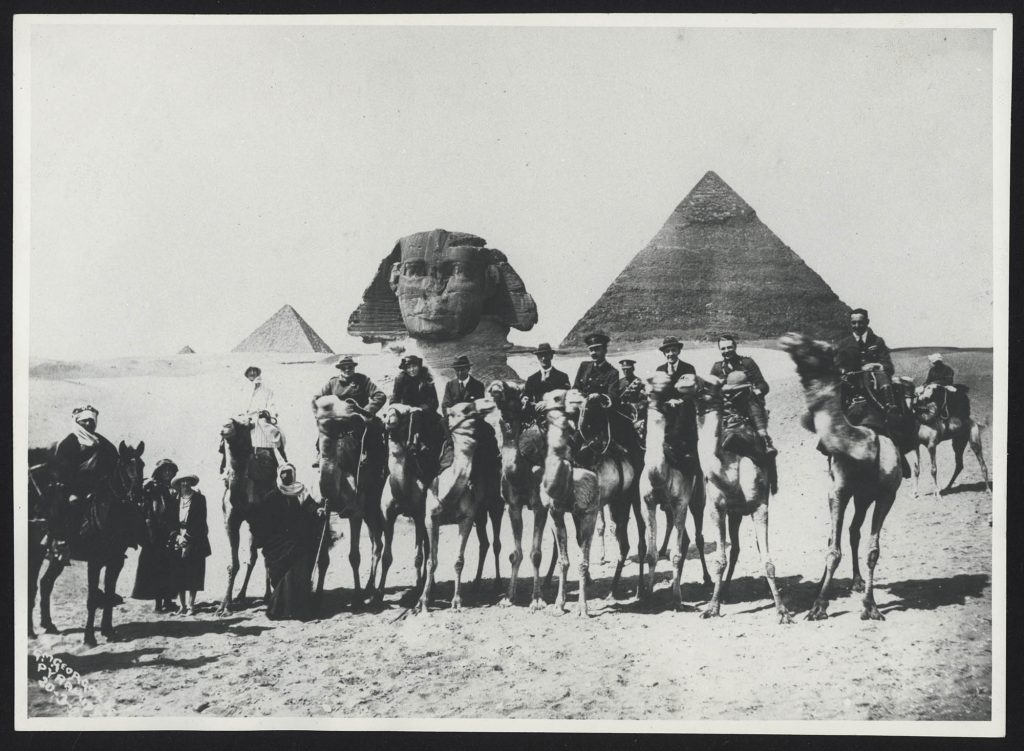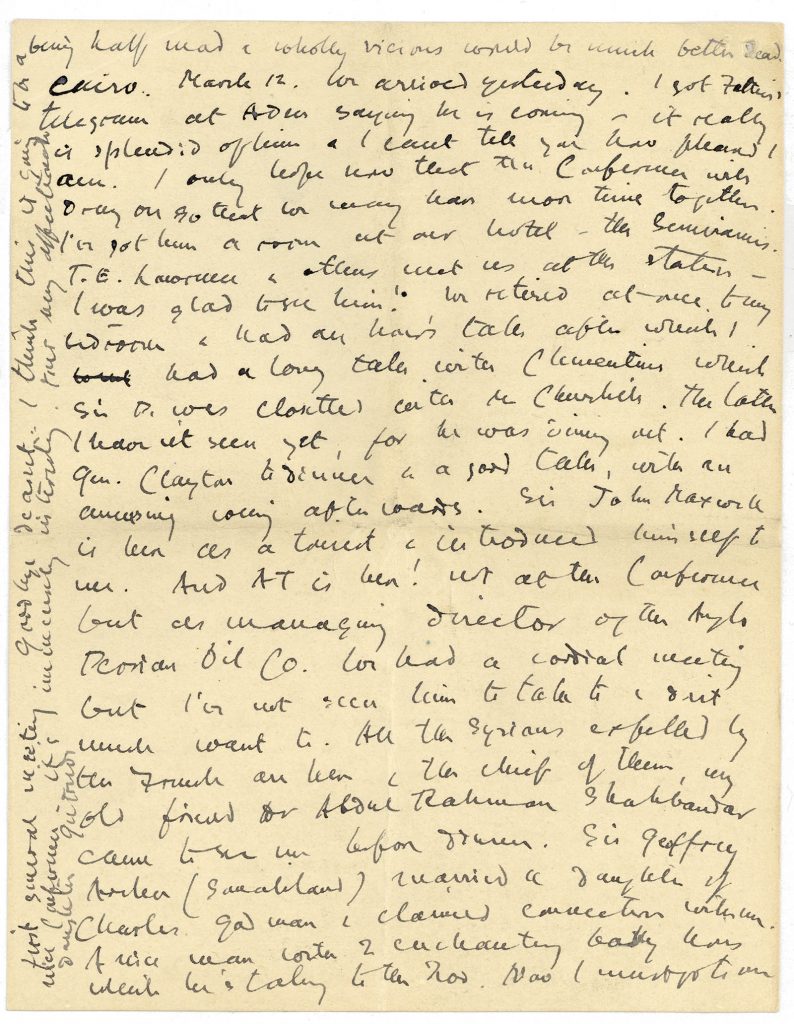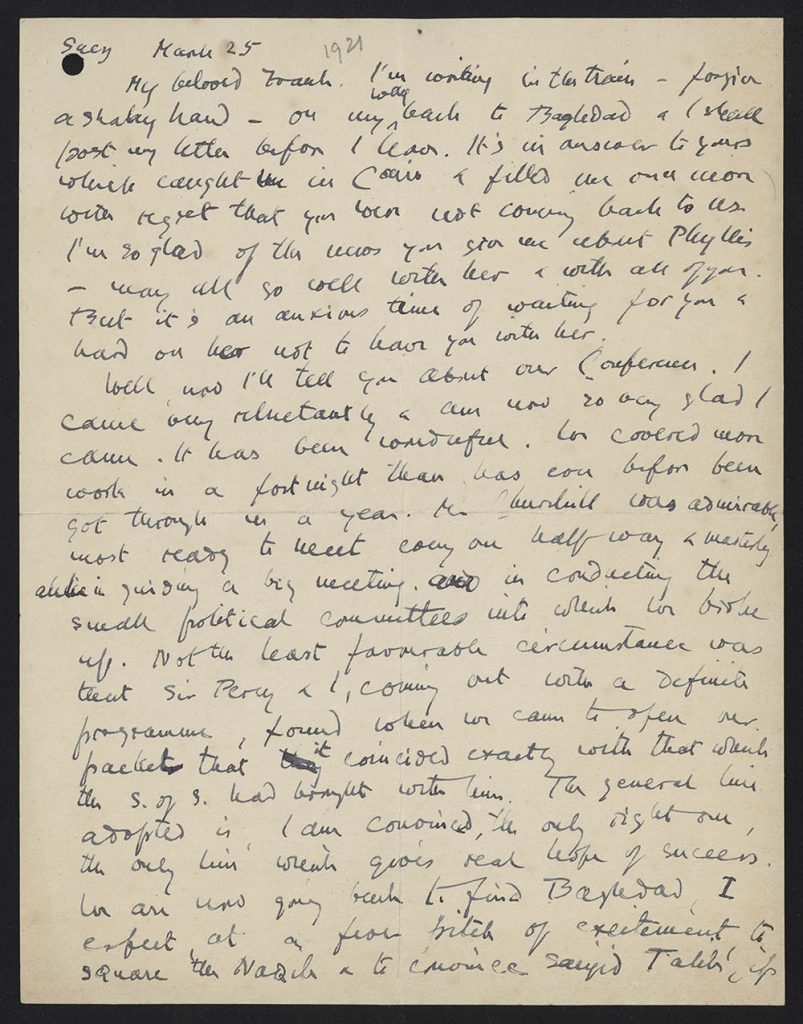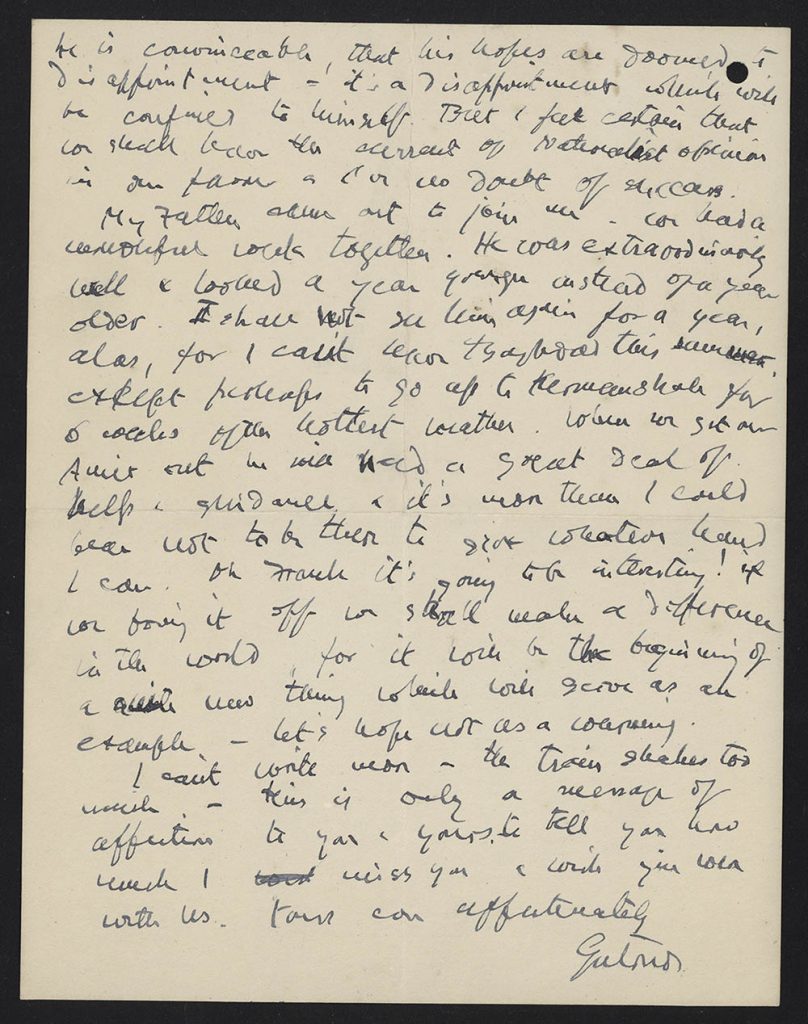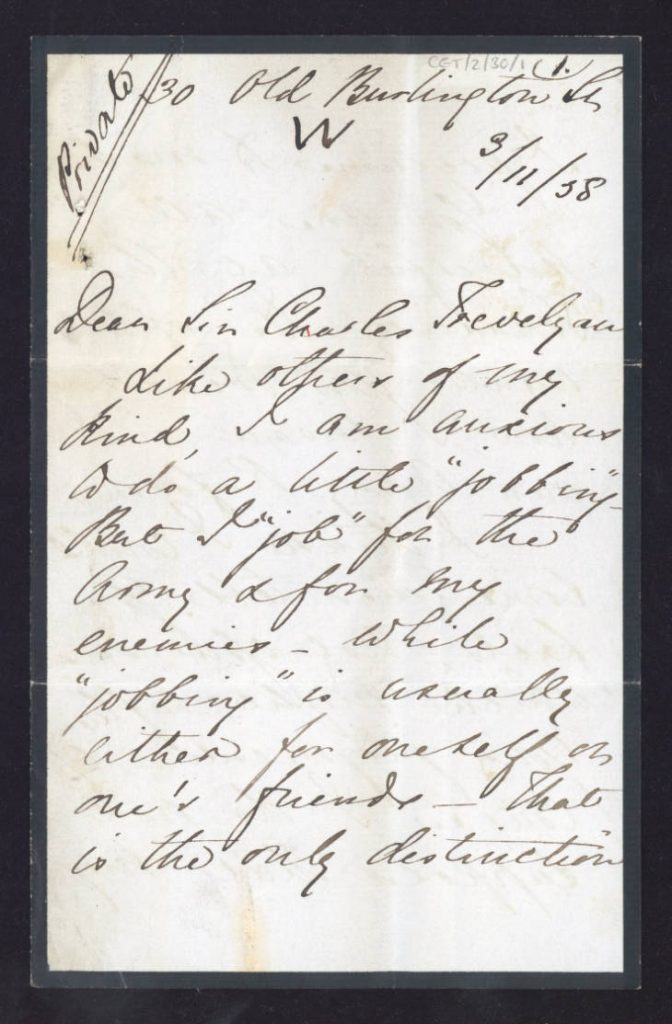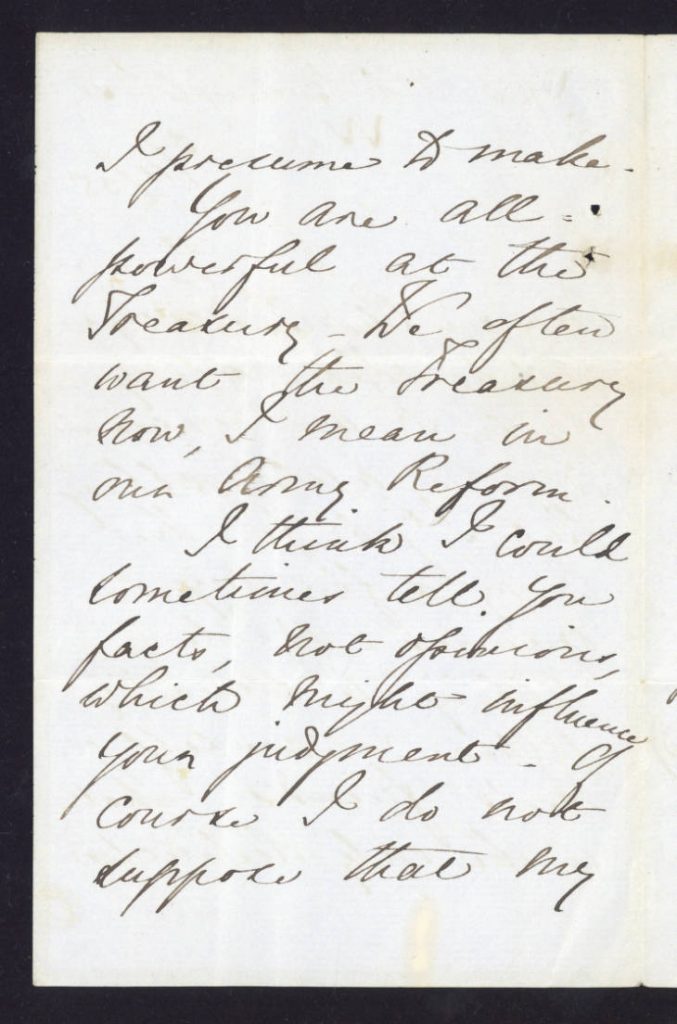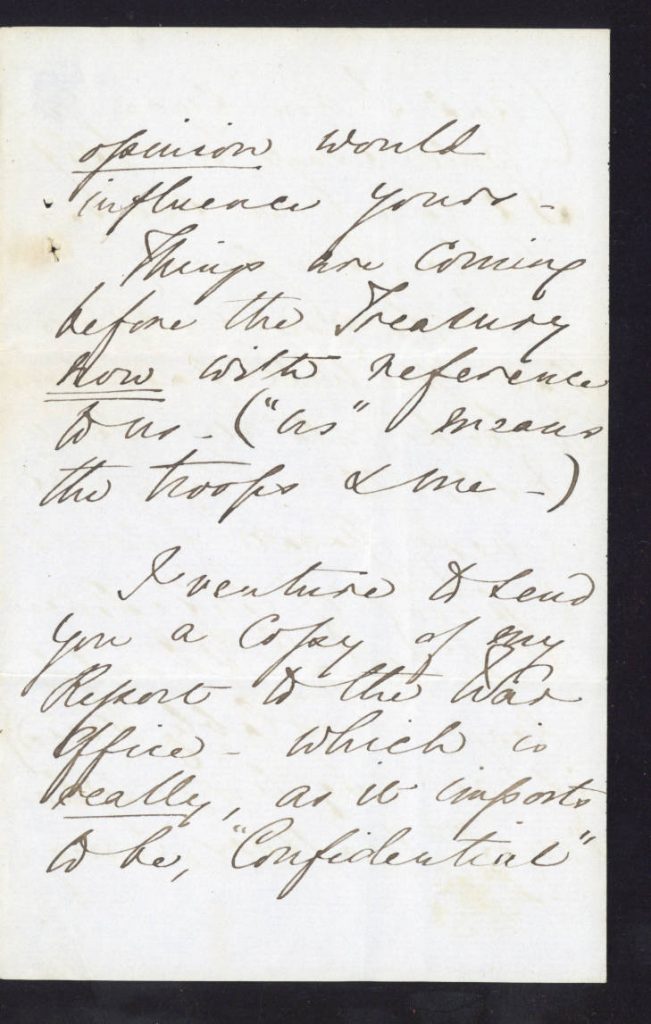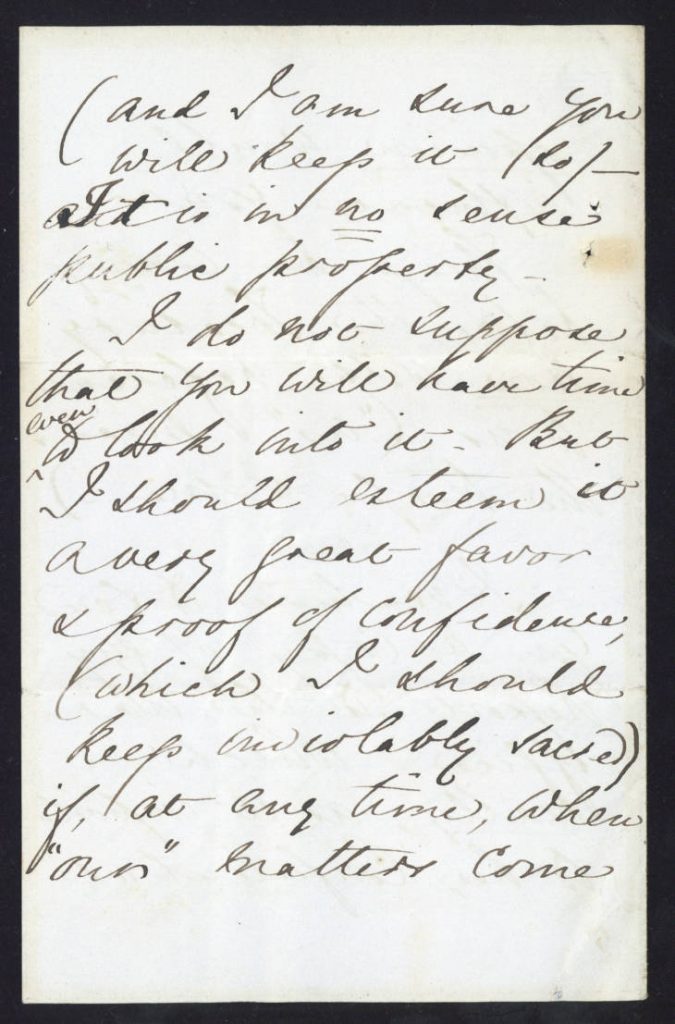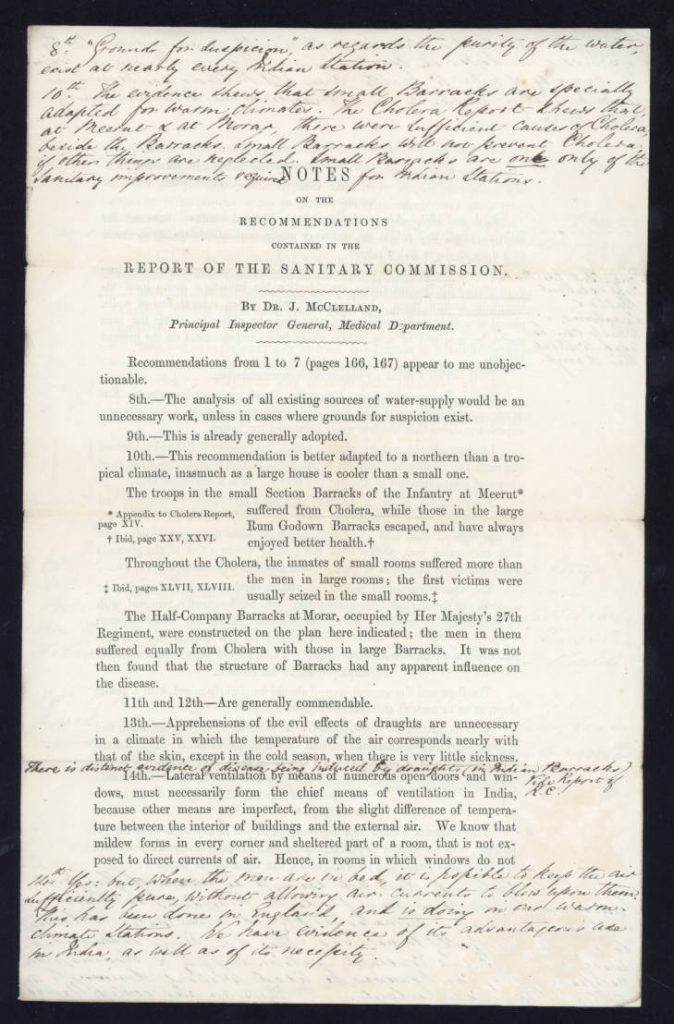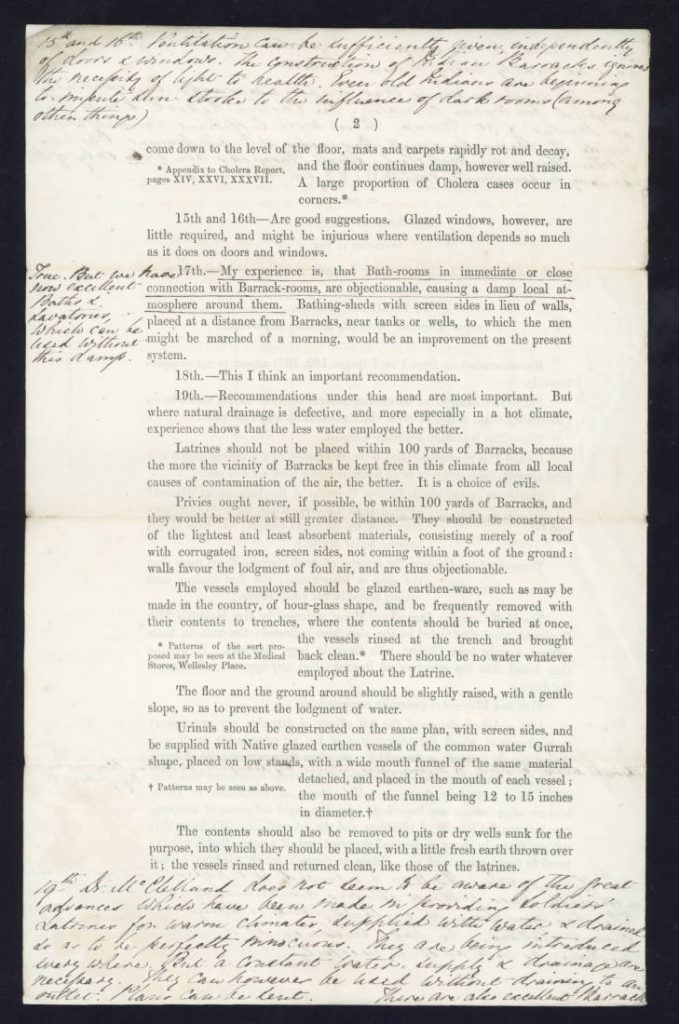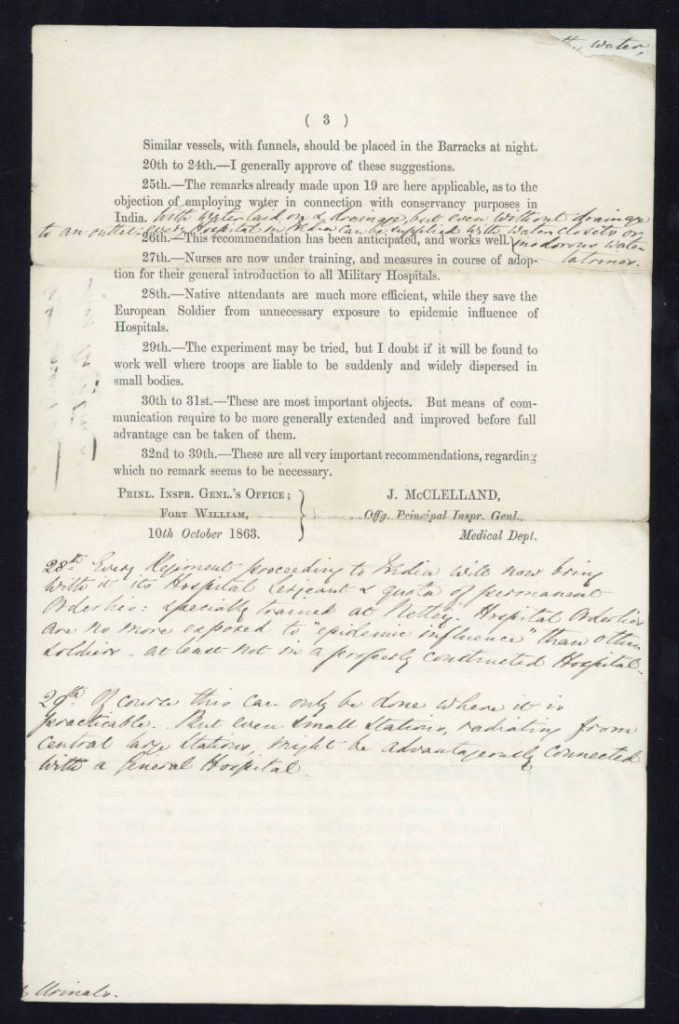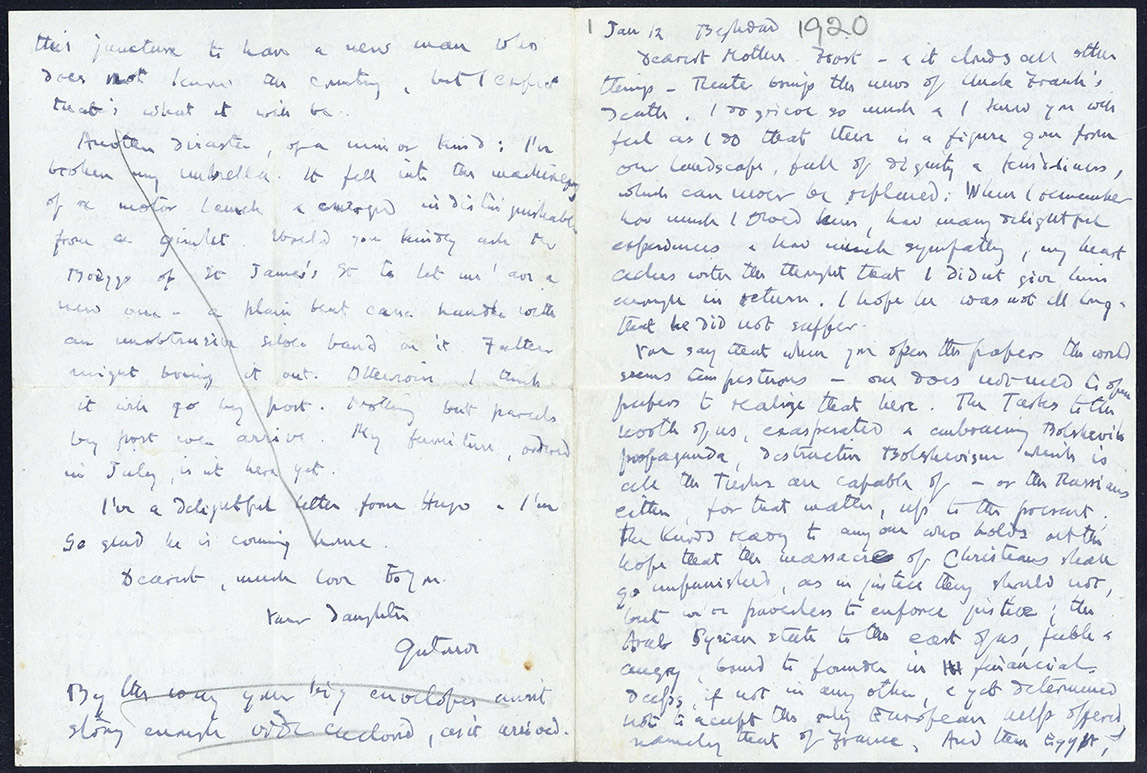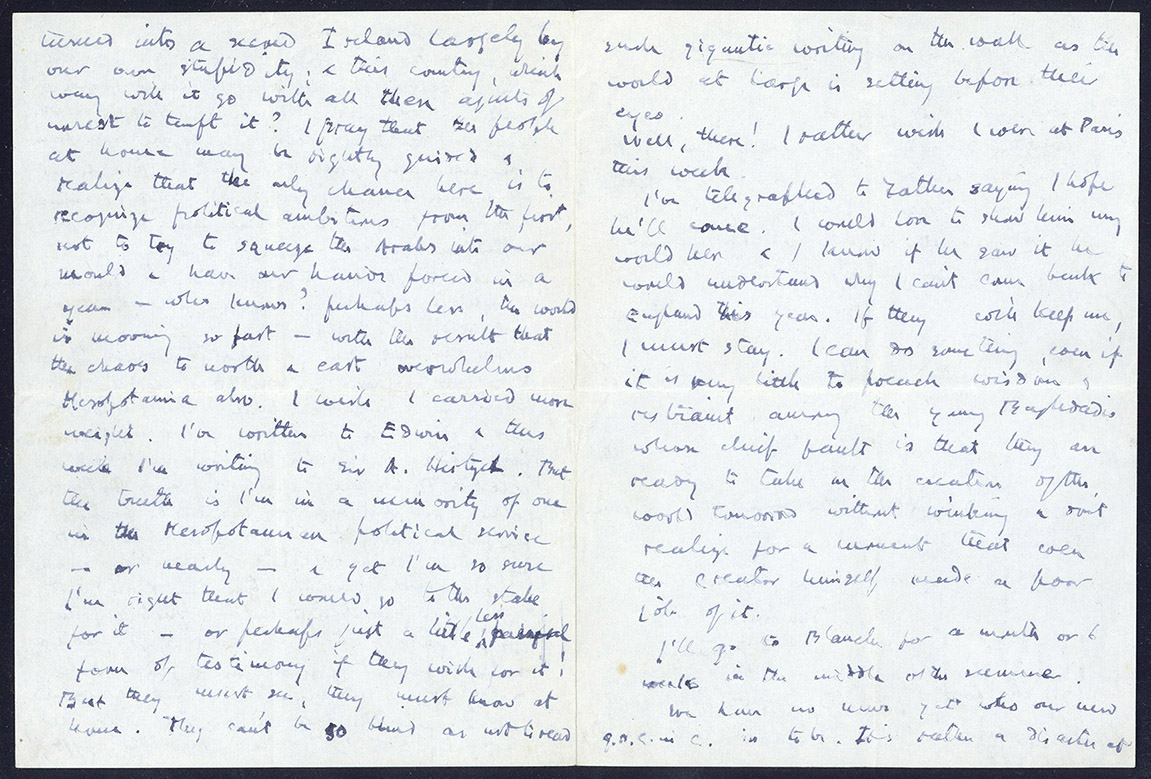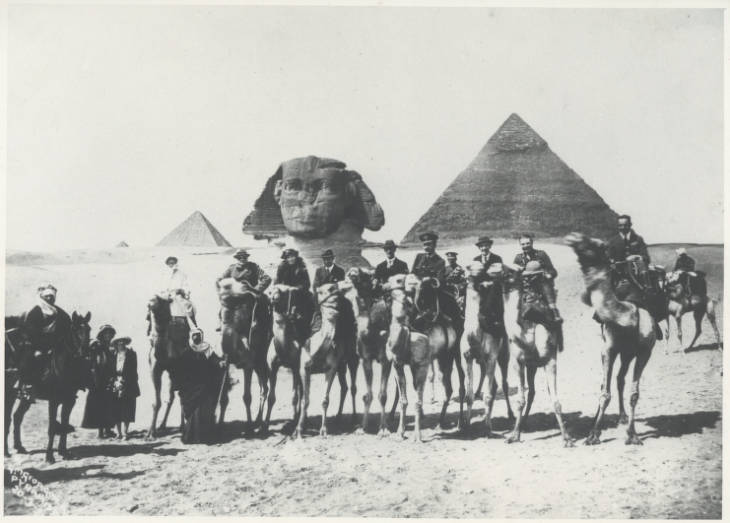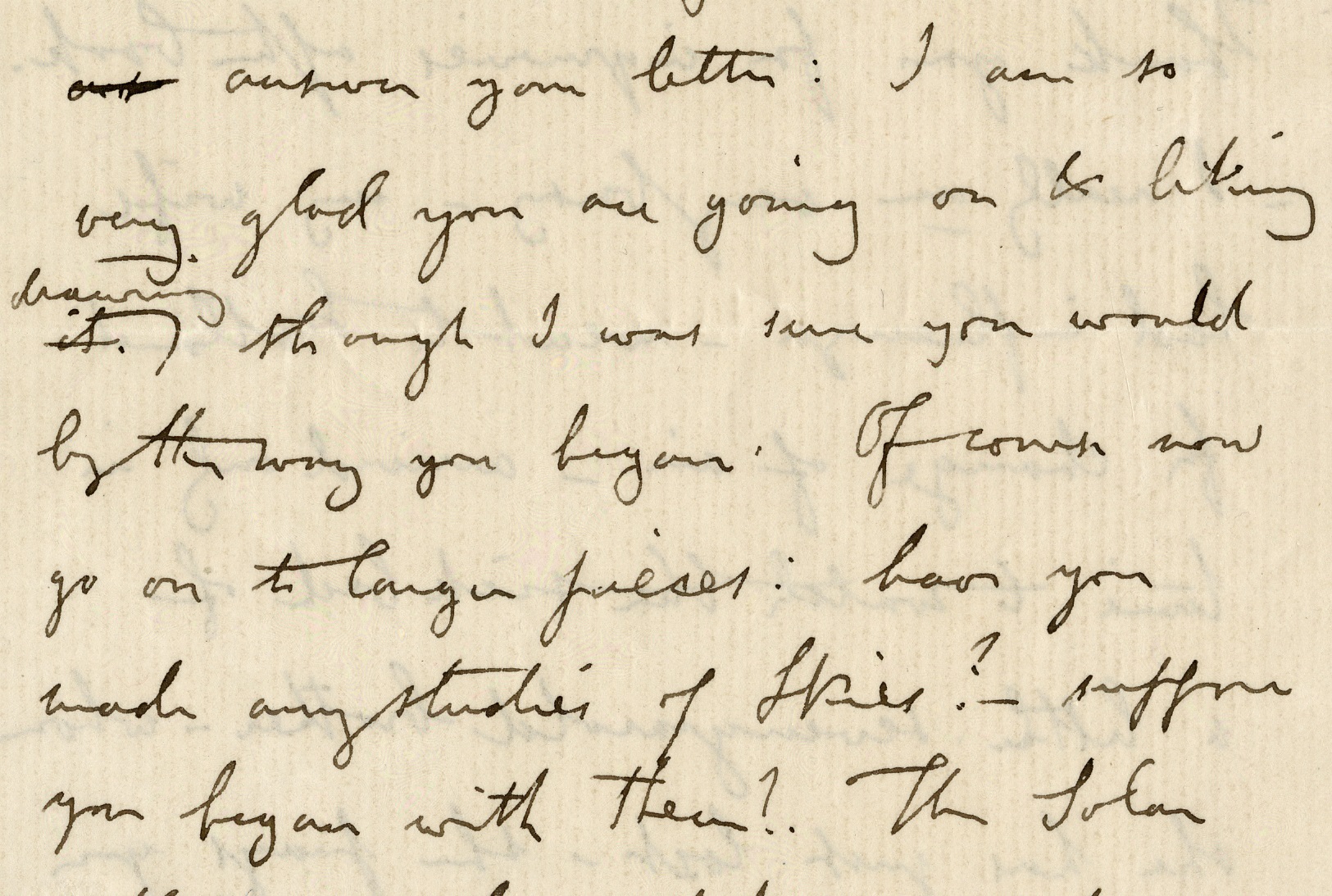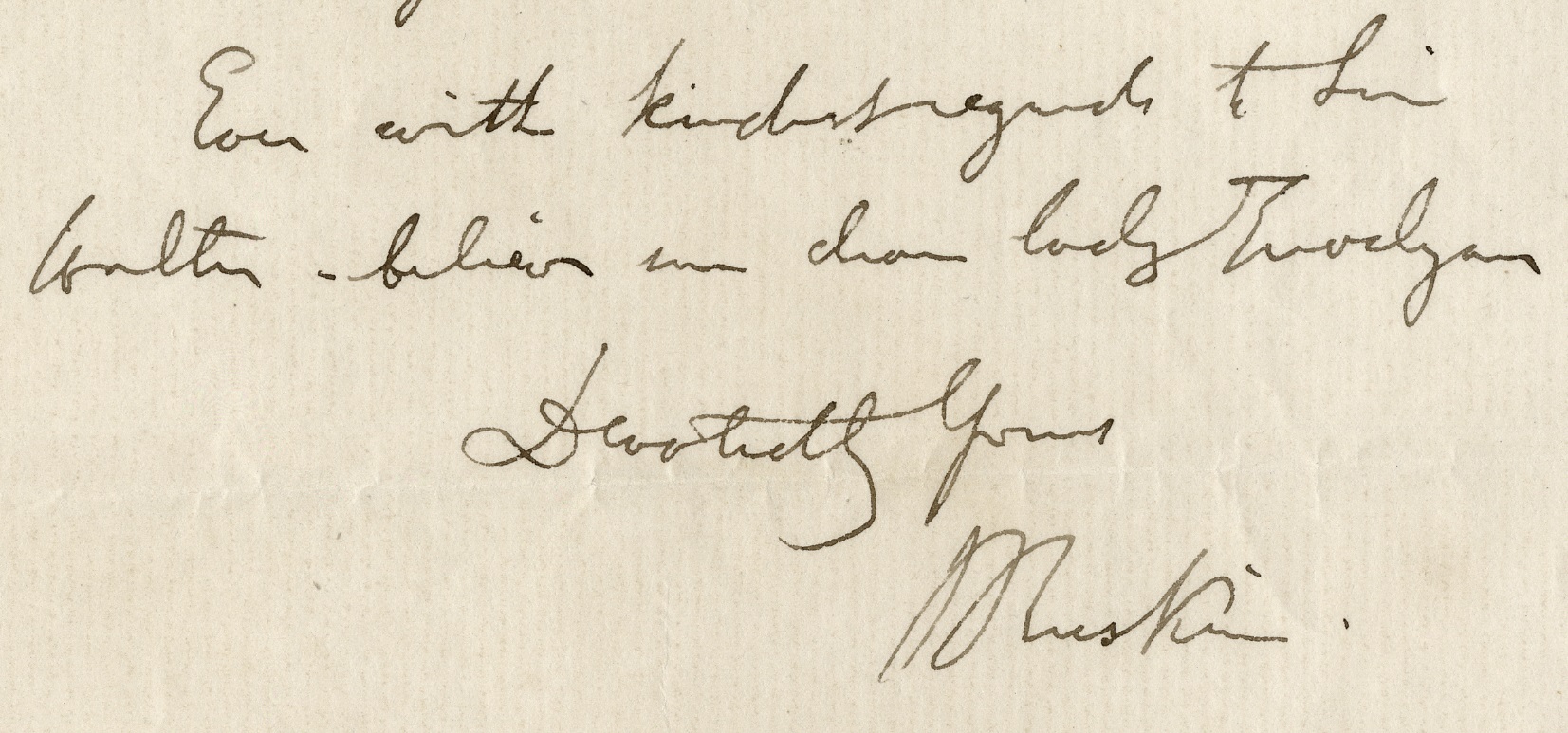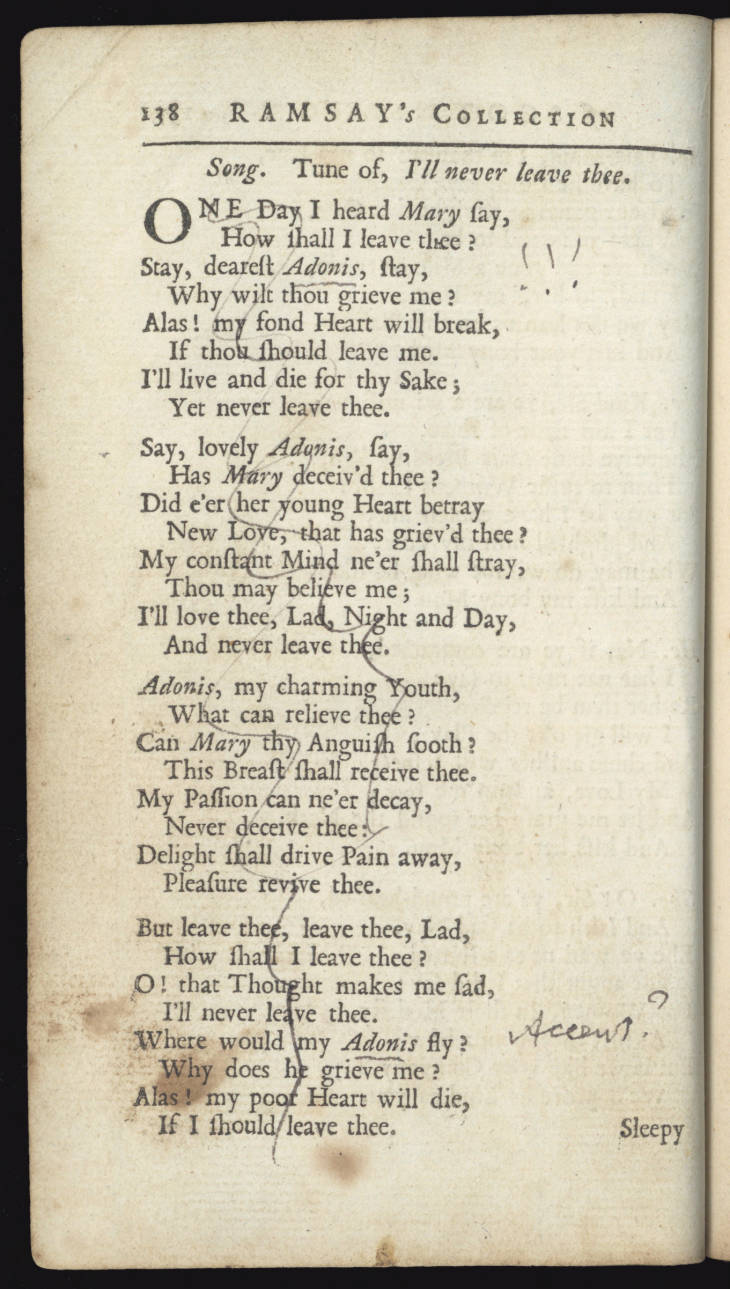The 15th April 1912 was a dark day in maritime history. RMS Titanic sank during her maiden voyage from Southampton to New York City, after hitting an iceberg. The Titanic was built at Harland and Wolff, Belfast and was the largest passenger liner in the world at the time. The accident resulted in the loss of over 1500 lives.
News of the tragedy spread around the world and the sinking was huge news in the media. Punch included a dedication to those who drowned.
“Tears for the dead, who shall not come again
Homeward to any shore on any tide!
Tears for the dead! But through that bitter rain
Breaks, like an April sun, the smile of pride.
What courage yielded place to others’ need,
Patient of discipline supreme decree,
Well may we guess who know that gallant breed
Schooled in the ancient chivalry of the sea! O.S.”
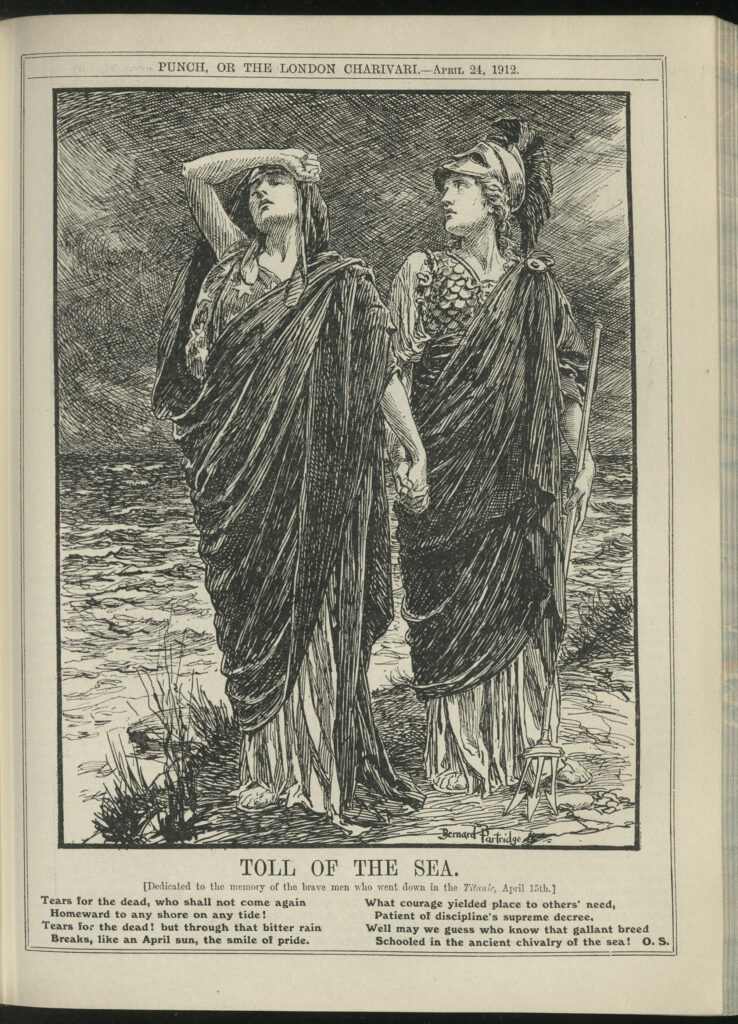
People wrote of the Titanic’s sinking in their diaries and in letters. The M. P., Charles Philips Trevelyan wrote to his daughter, asking if Miss Clarke had told her of the accident.
The letter reads,
“Has Miss Clarke told you the dreadful story of the ship-wreck of the Titanic? It struck on an ice-berg and went down and hundreds of people were drowned.”
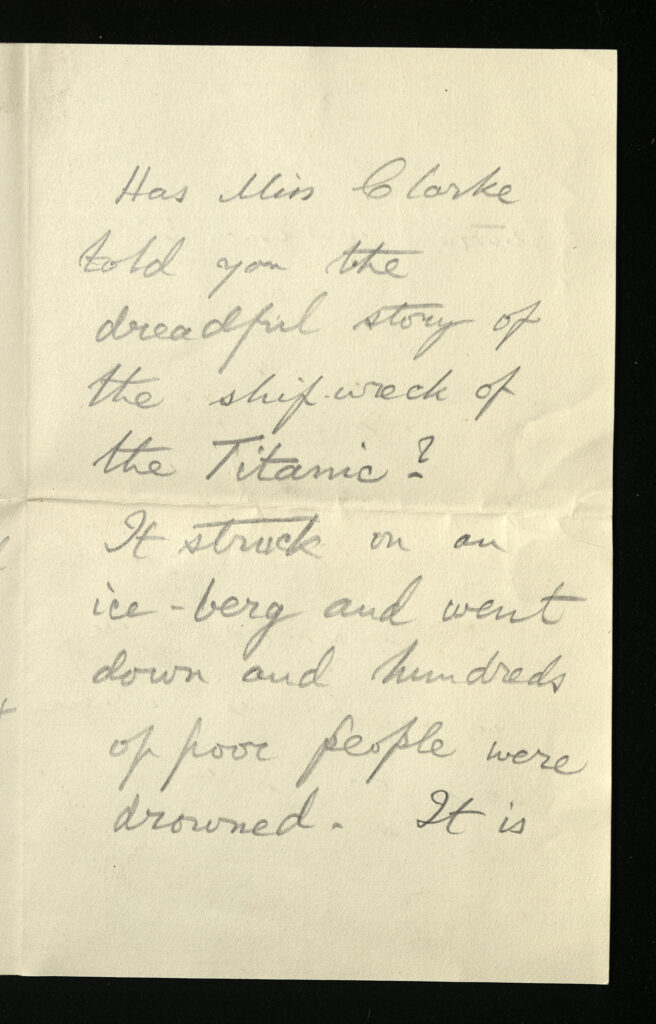
His wife, Mary Trevelyan, known as Molly, wrote in her diary of the tragedy,
“The last week has been overshadowed by the most terrible shipping disaster that has ever happened. There are two giant White Star ships, The Olympic and The Titanic, the biggest liners afloat. The Titanic with 2,200 on board, started on her maiden voyage at the end of last week and on Sunday night, just before midnight, she struck an iceberg, 600 miles from the American coast and sunk in 2.5 hours. All the women and children were saved, but hardly any men. There were 13 lifeboats full, and overfull. The titanic marconied for help, and the Carpathia came under full steam, and arrived at dawn to fill the boats but no Titanic. The accounts are heartrending, and one could hardly read them without tears.”
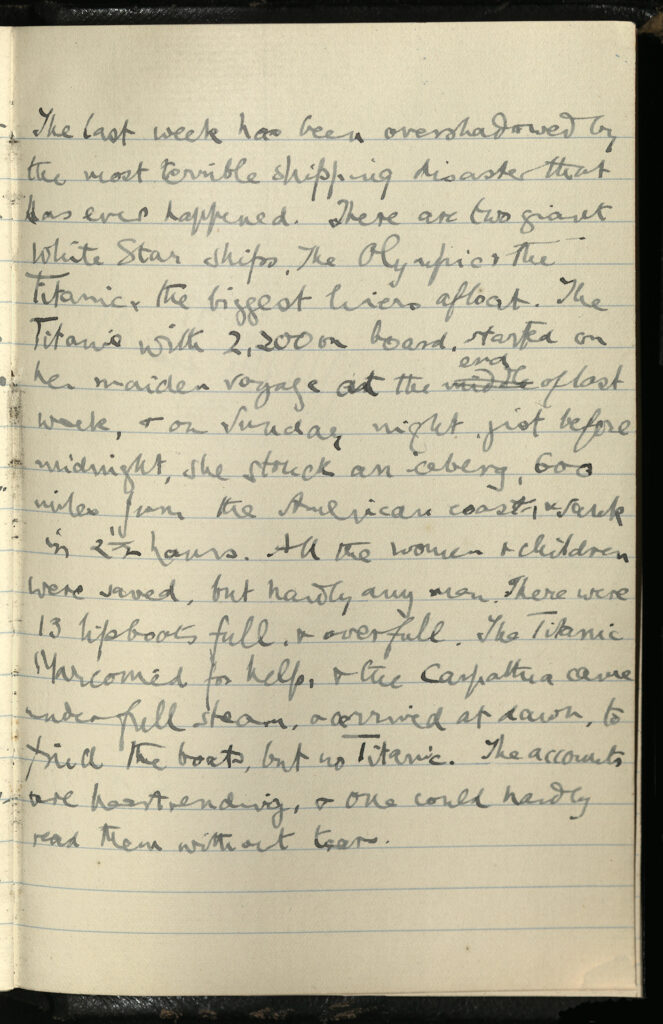
The former Professor of Classics at Armstrong College, John Wight Duff, wrote of how the disaster was mentioned in the Church service he attended at Croft, on 21st April 1912.
The diary entry from 21st April 1912 reads,
“The Rector’s sermon was on Exod. [Exodus] XV. 5. “The depths have covered them: they sank into the bottom as a stone” and touched on “the week of eclipse when it was dark at noonday” and shadowed with the gloom of the loss of the Titanic on an ice field and the drowning of over 1400 passengers and crew.”
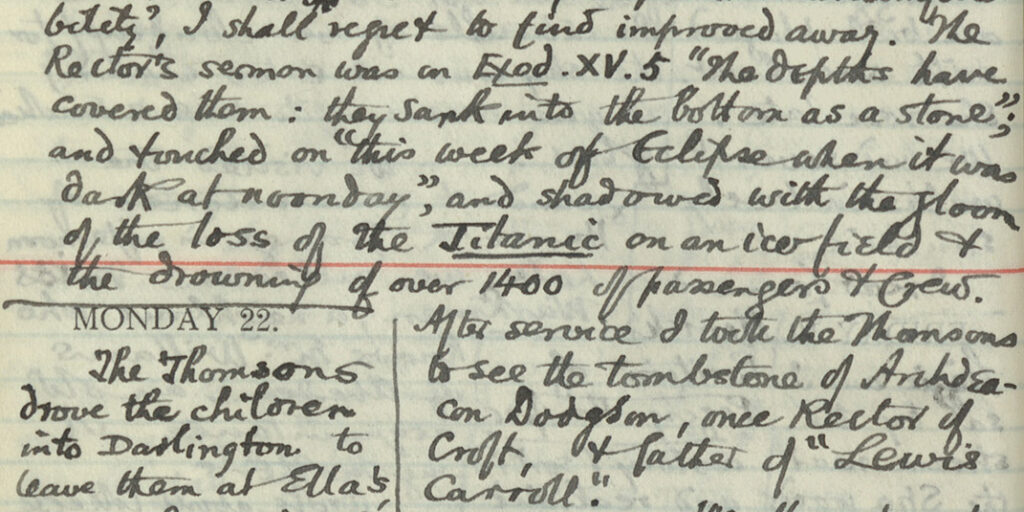
The journalist and author Frederic Whyte, mentions the event in a letter to his then future wife. Included are cuttings about another passenger who perished, the journalist W. T. Stead being aboard the ship, as well as information of a special service held in his memory.
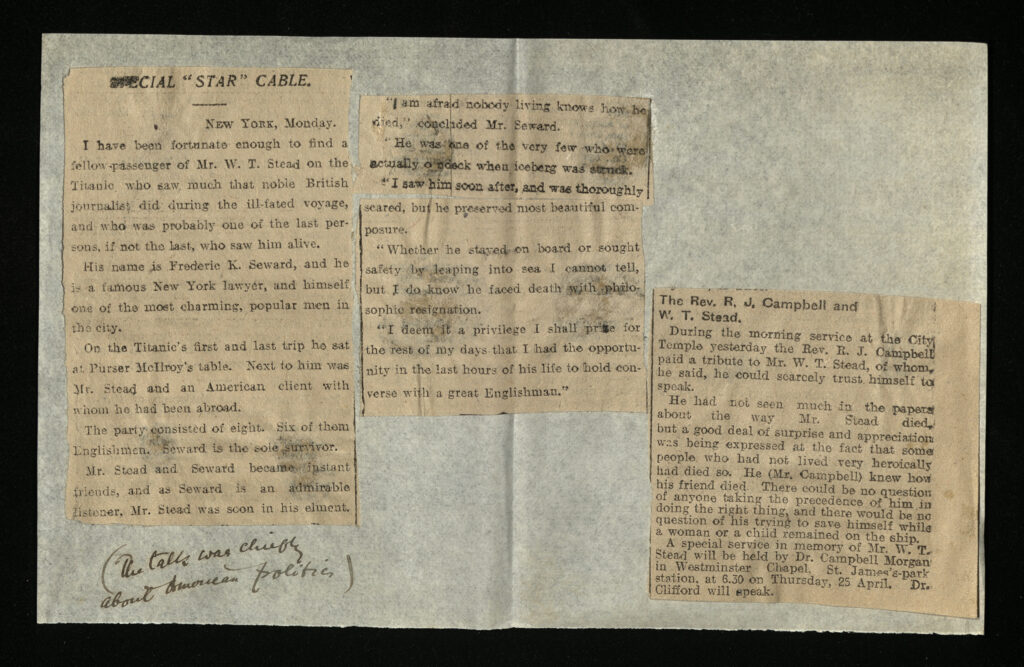
There has always been a lot of interest in the Titanic, partly as it was known as the “unsinkable” ship. The wreck of the Titanic was eventually discovered in September 1985, when it was discovered to have split into two., but due to deterioration the ship has never been raised. There have been further expeditions to the wreck to recover items, leading to various exhibitions about it around the world.
Many books, fiction and non-fiction including Clive Cussler’s Raise the Titanic and films, including James Cameron’s Titanic.
In recent years a Titanic Quarter has been developed in Belfast which is proving to be a popular visitor attraction and ensuring that the name Titanic lives on.

